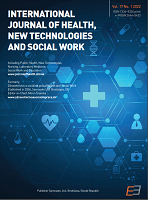The Quality of Life of Prisoners with Electronic Tags
The Quality of Life of Prisoners with Electronic Tags
Author(s): Lucie Hanzalíková, Roman Svatoš, Aneta Witzanyová, Ingrid Baloun, Miloš VelemínskySubject(s): Sociology, Criminology, Health and medicine and law
Published by: SAMOSATO, s. r. o., Bratislava, Slovensko - MAUREA, s. r. o., Plzeň, Česká republika
Keywords: electronic tag; advantages/disadvantages; convicted person; benefit;
Summary/Abstract: Introduction: The objective of the thesis was to determine the advantages and disadvantages of house arrest with the use of an electronic tagging system for both. Evulation the quality of life. Aim: The advantages and disadvantages of electronic tags, their benefit for house arrest sentences and the effect on the quality of life of convicts were examined. Methods: Ten informants from the Probation and Mediation Service The qualitative research strategy and questioning method using a semi-structured interview were used. Interviews were performed on the phone and comprise responses to 12 questions that the informants received by e-mail. The responses were processed using open coding, categorisation, grounded theory Results: Based on the study, it can be deduced that the benefit of electronic tagging for the service of house arrest is its effectiveness and absolute control of the convict; the workers of the electronic tagging system department know precisely when and where .The greatest advantage of electronic tags when compared with random checks performed by PMS workers is the 24 hourse monitoring of the convict. On the other hand, the disadvantage of electronic tags and less frequent personal contact. Conclusions: The content of the study can complement the domestic practical literature
Journal: International Journal of Health, New Technologies and Social Work
- Issue Year: 17/2022
- Issue No: 1
- Page Range: 27-37
- Page Count: 11
- Language: English

